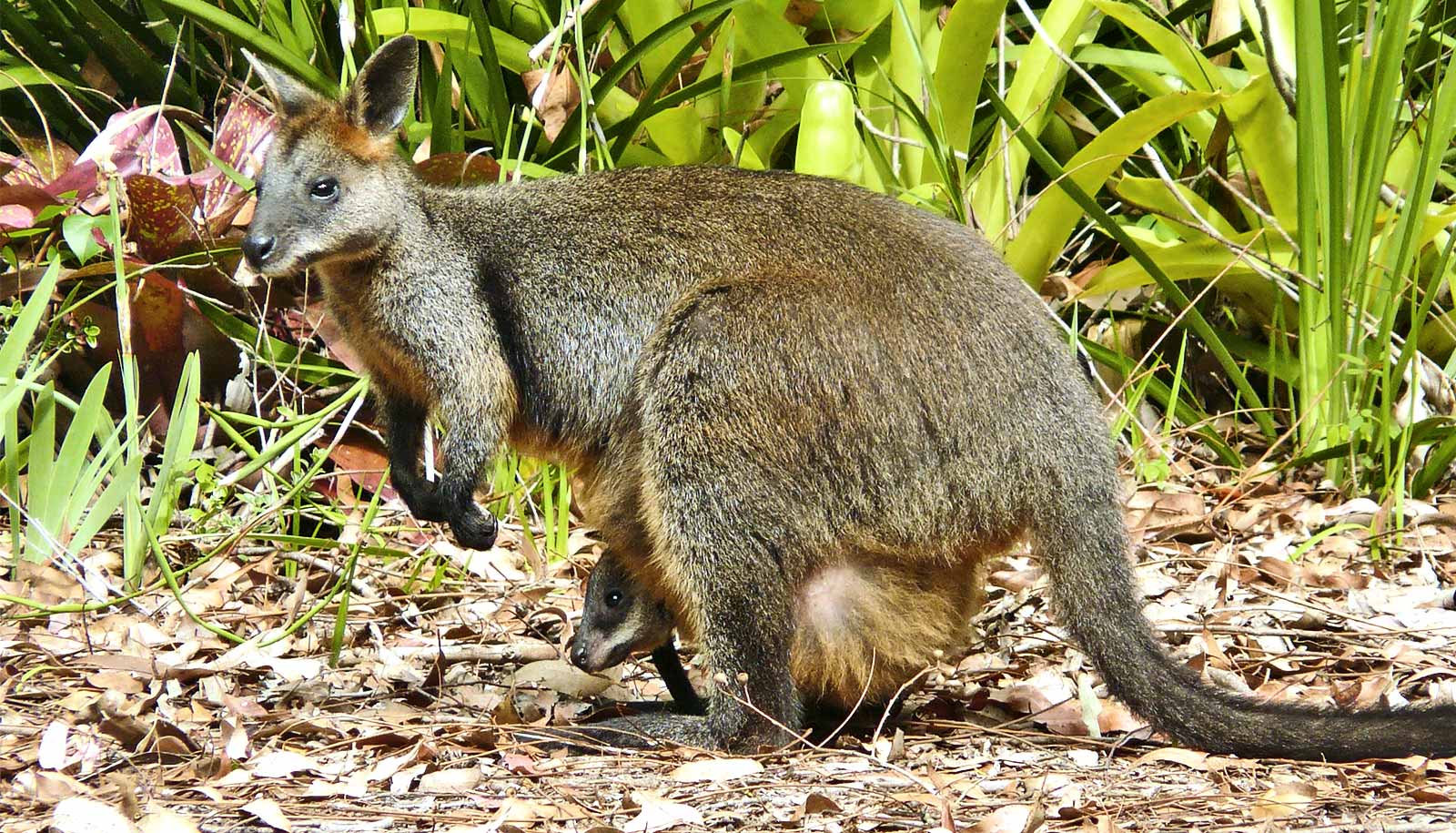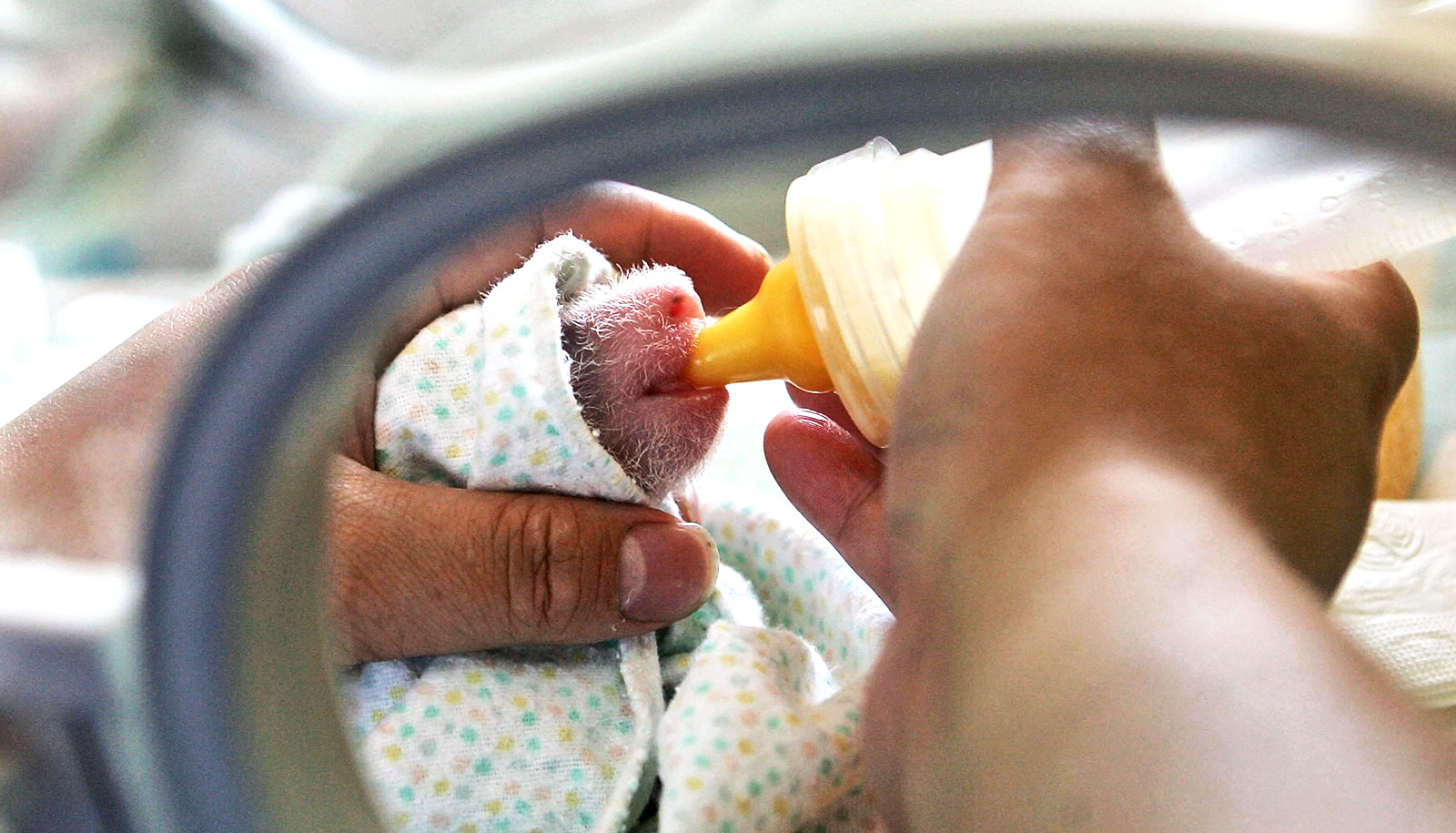Swamp wallabies are always pregnant, researchers report.
They’re the only mammals that stay pregnant throughout their whole life, according to a new study.
Unlike humans, kangaroos and wallabies have two uteri. The new embryo formed at the end of pregnancy develops in the second, “unused” uterus. Then, once the newborn from the first pregnancy begins to suck milk, the new embryo enters a long period of developmental arrest that may last up to 11 months or more.
When the sucking stimulus from the young in the pouch declines, the dormant embryo starts growing again and the cycle starts anew, with females returning to oestrus in late pregnancy, mating, and forming another embryo.
Marsupials have the largest sperm, the shortest pregnancies, and exhibit the longest periods of embryonic diapause.
“Thus, females are permanently pregnant their whole lives,” says Brandon Menzies of the University of Melbourne, who collaborated on the research with Marilyn Renfree and Thomas Hildebrandt, professors at the Leibniz Institute for Zoo and Wildlife research in Berlin, Germany.
The findings shed light on the record-breaking reproductive systems of marsupials.
Mammalian pregnancy is usually longer, up to 22 months in elephants, with several stages that require different combinations of hormones.
While most mammals also require a break between pregnancies, either to support new young or during periods of seasonal lack of resources, the female swamp wallaby is the only one that can claim the reproductive feat of being permanently pregnant throughout its life.
Marsupials have the largest sperm, the shortest pregnancies, and exhibit the longest periods of embryonic diapause (developmental arrest of the embryo) among mammals.
Furthermore, kangaroos and wallabies regularly support young at three different stages of development, namely, an embryo in the uterus, an early stage pouch young, and a semi-dependent young at foot (still sucking milk).
“Whatever the reason, the swamp wallaby is an incredibly successful and ubiquitous species in Australia, occupying a range that stretches from the Western Victoria/South Australian border all the way up the eastern seaboard to Cape York in far north Queensland,” Menzies says.
“We used high resolution ultrasound to track pregnancy and mating in 10 female swamp wallabies,” Menzies says. “What we found amazed us—the females come into oestrus, mate, and form a new embryo 1-2 days before the end of their existing pregnancy. The swamp wallaby is the only mammal known to be continuously pregnant in this way.”
Researchers know of just one other species of mammal to go into oestrus while still pregnant—the European brown hare (Lepus europaeus). This species also returns to oestrus in late pregnancy and conceives additional embryos before giving birth. This feat may be all the more remarkable because the embryos are conceived within common uterine horns already supporting late-stage fetuses.
The study appears in the Proceedings of the National Academy of Sciences.
Source: Lito Vilisoni Wilson for University of Melbourne


